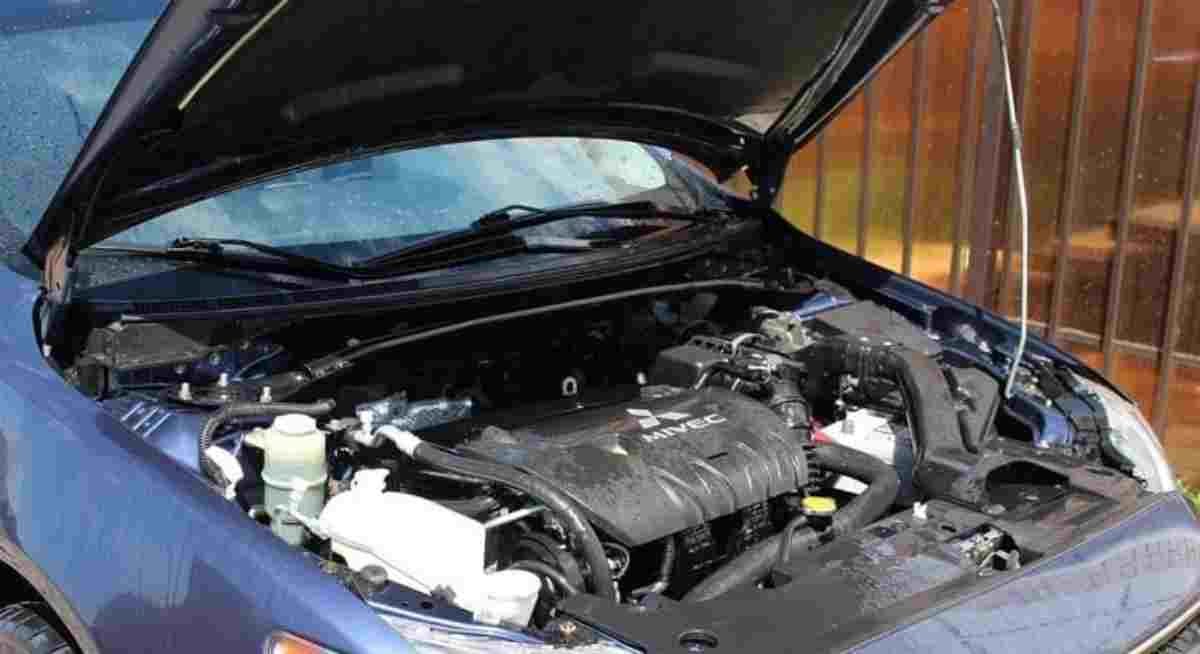Reasons Car Engine Sounds Loud When Accelerating
This repair and maintenance guide explains why your car engine sounds loud when accelerating. The few seconds or minutes of acceleration can be noise polluting, drawing unwanted attention from other road users.
A car engine will get louder when accelerating due to a failing exhaust system, worn serpentine belt, bearing failure, faulty transmission, and worn piston/knocking engine. Malfunctioning knock sensors and damaged heat shields are common causes of a loud-sounding engine during acceleration.
Instead of avoiding the gas pedal, you want to tell what the problem is, even without seeing a mechanic, to have it fixed.

Why engine sounds loud when accelerating and how to fix
This section explores the various reasons your vehicle keeps sounding loud when you accelerate. Of course, the fixes are also recommended:
Failing exhaust system
The exhaust is only slightly louder in some cars when accelerating. Sports cars can be really loud since they are built to perform this way.
However, for a crossover or sedan suddenly roaring like a race car, the muffler and exhaust pipes need checking.
Read also: negotiating your way out of car repo
If your car makes a rattling noise when accelerating, there could be a loose bracket causing the muffler to vibrate. A leak in the muffler or one of the exhaust pipes running the length of your car will cause it to sound louder when accelerating.
How to fix
A closer inspection will reveal if the muffler or exhaust pipe is faulty.
However, you need a mechanic for this problem to get a correct diagnosis and detect other issues in the exhaust, including a damaged exhaust pipe gasket.
Worn serpentine belt
Worn serpentine belts will cause your car engine to sound loud during acceleration. This is typically the case if the engine makes a squeaky or squealing noise instead of loud bursts.
A failing pulley system, which the belt operates on to start when accelerating, will also cause a loudness.
Read also: gas leak signs and mechanic’s fixing recommendations
In this case, as the belt system rotates in the engine to ignite during acceleration, loose belt components squeal against the pulley system, causing a rough rotation.
How to fix
If you figure out that the belt is loose, tighten it to stop the loud engine acceleration sound.
A worn belt is responsible for the loud noise when accelerating; get a replacement belt. You may also have to change the pulley system.
Changing the pulley system will depend on the severity of the damage or its effect on the engine.
Bearing failure
If the bearings are faulty, you will get a loud engine screeching or ticking noise. Bearings are located within where the engine’s moving parts meet the non-moving parts. They hold the crankshaft in place, allowing it to rotate within the engine block.
Bearings also reduce friction between the stationary and rotating parts of the engine. Bearings support moving components such as crankshafts and connecting rods.
Bearings help determine engine oil’s pressure and protect the crankshaft from getting damaged by small particles.
Failed bearings will not spin the cam and crankshafts to the needed acceleration levels, causing a loud noise as the bearings move faster.
How to fix
If bearings failure is the reason your engine sounds louder when accelerating, change the bearing parts.
Changing bearing parts can be stressful, so you want an experienced mechanic to do the engine work for the bearing replacement.
Faulty transmission
Transmission in a car helps the gear ratio between the drive wheels and engine to adjust as you slow down or speed up the car. It just matches the output of the engine to your driving speed and the weight of the load.
The transmission does a lot in a car, so it is proper to inspect it as a faulty transmission will cause your car engine to be louder or rattle when accelerating.
How to fix
The solution is to change your transmission fluids at least every 50,000 miles. You may not be keeping track of your travel periods, so make sure to check regularly to make sure the fluid is within the acceptable level.
Refill the transmission fluid if it is below the recommended levels to stop the car from being loud when you hit the gas to accelerate.
Worn piston or knocking engine
The piston is an important component in the internal combustion engine which helps to convert fuel into energy to move a car. It is a metal component moving inside a cylinder, similar to a battering ram.
Read also: with increasing vehicle gas cost, here’s how to run on alcohol
When the piston is functional, it moves silently. A worn piston makes a loud noise in the engine, which increases when the car is accelerated.
How to fix
Piston displacement and extended usage will cause it to wear. The first solution to consider to stop your engine from being loud during acceleration is to check and place the piston rings properly.
Ensure the pistons do not misplace when you start the car after installation. Use the proper number of rings during installation, or have a professional make the replacement.
You should also consider lubricating the piston when it sounds too loud on acceleration.
Malfunctioning knock sensor
The knock sensor in a car detects pre-ignition and detonation. It records knocking noise in the engine operating states to protect the engine from damage.
There is typically a soft balance between the fuel injectors, air or fuel ratio, and the timing in a modern vehicle since it is computer-controlled. This computerized control also helps the engine stay noise-free even without balancing these factors.
A failing knock sensor will not maintain balance in the engine, causing multiple knocks in the engine and loud noise during acceleration.
How to fix
The solution is to get a replacement knock sensor for your car. For a manually-controlled car, ensure an air/fuel ratio inspection and look for other conditions causing the engine knocks. An auto mechanic is in the best position to solve this problem to keep the vehicle from sounding loud when accelerating.
Damaged heat shield
The heat shield is a thermal barrier that protects objects from overheating. For instance, it keeps the 400-degree muffler from catching fire in a wheat field you park in.
A heat shield is essential for the exhaust but is exposed to frequent damage since it is located beneath the car and heated when in motion.
Damaged heat shields will cause a loud rattling noise from the engine when accelerating. This is typically a result of an increased engine work rate.
How to fix
The solution is to fix it or get a replacement heat shield, and the installation procedure is similar to installing an exhaust pipe joint. You need a mechanic to fix it or install the replacement. Replacement heat shields can be expensive.
Read also: why will car windows not go up when down?
Summary
The suggestion in this publication could be just what is wrong with your engine, making it sound deafening when you accelerate. Try to figure out the common problem before contacting a mechanic, or try to fix it yourself.
Most importantly, do not continue driving a car that makes loud noise, whether it is when accelerating or not to prevent significant issues.
- 10 Common Mistakes When Bleeding Brakes - September 12, 2023
- Dash Cam That Records When Car is Off [5 Best] - September 11, 2023
- How to Know if Dash Cam is Recording [10 Methods] - September 8, 2023




